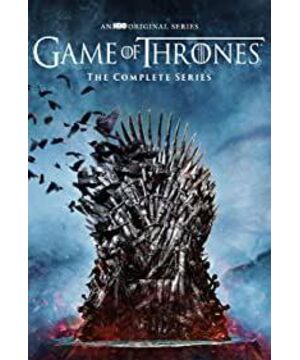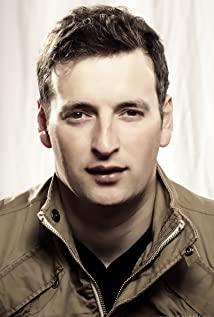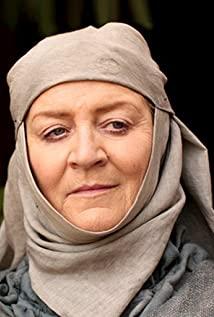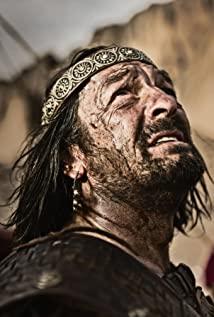"Game of Thrones", although everyone has seen it, do you really understand the knight system in it? What does this system have to do with the U.S. stipulation that people over 21 years old can drink alcohol? Because we are different from Britain and the United States and other countries in history and culture, it is difficult to understand the expression of some movies or American dramas without comparison. We have to analyze it bit by bit like peeling an onion.
1 Why did the various surnames of the Chinese emperor take turns in the village while the blood of the British king has never been broken?
We know that the surnames of the emperors of each dynasty in China are different. It seems like natural common sense, like the sky is blue. For example, the Ming Dynasty belongs to the Zhu family and the Qing Dynasty belongs to the Aixinjueluo family. But this is not the case in England. Since the Norman Conquest in 1066, nearly 1,000 years have passed. Today's Queen of England can still be traced back to his ancestors, and not only England, but also our neighbor, Japan, is also known as A series of Aeons can also be traced back to the first generation of Emperor Shenwu in blood.
Some people would say that there are also various dynasties in Britain? What is the Stewart dynasty, the current Windsor dynasty? In fact, this is different from our dynasty. The division of our dynasties is based on the change of rulers. However, the name of the British dynasty changed mostly because the previous king had no male heirs and found other relatives of his own to inherit the throne. Sometimes This relative had a different surname from the king, so a new dynasty was named. It's like a Chinese who has no children and let his nephew inherit the inheritance after death, but the nephew is the sister's child, and the surname is the brother-in-law, not this person.
In other words, every change of dynasty in China is almost a big change in society. Although Britain changed to a different dynasty, there was no substantial change in the country. Let's take the Windsor dynasty where Queen Elizabeth II is now as an example to see how the name of the dynasty changed.
The Windsor dynasty was named after Windsor Castle owned by the British royal family. In fact, during the First World War, Britain and Germany fought, and the British royal family's surname was Wetting, a German surname, which was inconvenient, so the name was changed to what it is now. Wait, how can a British royal family have a German surname?
It turned out that in 1714, the last three Stuart monarchs all lived to adulthood without heirs, but a princess of the family married to Germany and Norway, and her descendant was succeeded by George I, the elector of Han and Norway, so the name of the dynasty was changed to Han and Norway.
Have you guessed the difference between the rulers of China and Britain? In Chinese theory, as long as you overthrow the emperor in power, you are the new emperor. The emperor does not ask about his background, such as Zhu Yuanzhang, who was a monk. But in Britain and Japan, if you are not a relative of the royal family, you are not on the list of royal succession to be exact, no matter how hard you try, the throne will not be yours. It is impossible for Cromwell to monopolize the power during the British Glorious Revolution. The king.
For your better understanding, you can imagine the British and Japanese royal families as our Confucius. You can’t replace Confucius’s position as the most sacred master. During the Japanese Shogunate, the generals held the real power, but the emperor must always be enshrined. .
It's not that family, you are going to give up the idea of being a king.
Pay attention to why Long Ma, who is alone in Game of Thrones, is so obsessed with her throne, because she knows that even if she does not have an army, the throne is hers. Except for her family, everyone else is illegal. Strictly speaking , The fat king Baratheon’s rebellion was wrong. (Of course his reason is that the mad king is tyrannical)
2 Why doesn't Geoffrey the Great have the royal standing army he wants?
The next question is more interesting, what is feudalism? The time has come for the key points. The so-called feudalism refers to the establishment of a feudal state. The feudal lords divided the land level by level in their fiefs, which is what we often hear about the dukes, marquis, earls, viscounts, and barons of the English aristocracy. Of course, the last one is a knight (more on this later). For example, the Duke will allocate land to the Marquis, and the Marquis has the power to collect taxes, judicial powers, etc. in his fief, and he must also pay taxes to the Duke. More importantly, once the Duke wants to fight, he must follow it. You may have heard a saying that a vassal called my vassal is not my vassal, that is, in the feudal hierarchy, you cannot leapfrog the command. Therefore, the degree of freedom of feudal lords at each level is relatively high. When the upper-level lords fight, the lower-levels have to support, causing the upper-level lords to rely heavily on the lower-levels, because they are fighting knights, and the knights are the lowest-level nobles. In this way, the size of one's own army is not necessary, and secondly, it is more critical. The superior lords can't support so many troops, because the financial revenue has been distributed among the feudal lords at all levels. Therefore, Geoffrey's vision of the standing royal army under his command is unrealistic.
In addition, when Xue Nuo reunited in Winterfell in the play, he had to deal with several subordinate vassals who had rebelled against the Stark family. Although there were different opinions, he still returned the fief to those families. This kind of treatment was unimaginable in our ancient times.
This is different from the system of prefectures and counties in Chinese history that we are familiar with most of the time. In the county system, every official is appointed by the emperor regardless of his official position. He is in his jurisdiction and cannot collect his own taxes. In popular terms, he works for the emperor. The degree of freedom is relatively small. Of course, the system of prefectures and counties also has obvious advantages, such as prohibition, higher efficiency, and greater ability to collect taxes and mobilize civilians. Because the decree came from one family, there was no restriction from nobles at all levels.
The Chinese Zhou Dynasty was the beginning of the feudal system. Zhou people defeated merchants (no doubt, that's how the word merchant appeared), but the world was so big that the ruling technology and communication technology at that time were not enough to be effectively managed. Therefore, Emperor Zhou entrusted his relatives and heroes to various places in the world. However, after the war in various countries escalated, in order to invest more manpower and material resources to join the war more efficiently, all countries have changed their laws one after another. One thing that has been overlooked is that the countries have changed from sub-feuding to prefectures and counties. Of course, the evolution process is more complicated, so I won't start it here. The conclusion is that after the Spring and Autumn Period and the Warring States Period, my country is no longer a feudal society, but a centralized society of prefectures and counties.
Knowing the above difference, we can not only better understand British and American movies and TV series, but also a lot of news. For example, in China, the governor of course can order the mayor, but in the United States, the president generally cannot order the governor. That is to say, we have a hierarchical relationship, top-down, while in the United Kingdom and the United States, it is the decentralization of power between the bottom and the central government, each in charge of different fields, not a vertical relationship.
3 Why is the drinking age of Americans set to such an awkward number 21 years old?
Having said so much, I finally have to explain today’s topic. Why do Americans set the drinking age at 21 such an awkward position? Why is it not an adult who is 18 years old or just a whole number 20? This has to be traced back to the knight system, because in the Middle Ages, to become a knight, you must go through the three stages of paternity (7 to 8 years old), guard (from 14 to 15 years old) and knight (after 21 years old). Feudal chivalry education. This is where the number 21 comes from.
The child-serving stage is to go to the higher-level feudal master's house to do miscellaneous tasks and learn etiquette and the like. Entering the second stage is to learn the important seven knight skills-riding, swimming, throwing guns, swordsmanship, hunting, poetry, and chess. Let's take a look at the six arts that Confucius taught to his disciples-etiquette, music, archery, horse-drawn carriage, calligraphy, and mathematics. Have you noticed that the curriculums are all the same, so Confucius taught the basic courses to become aristocrats.
Let me just say that in the Middle Ages in Europe and before the Warring States period in our country, warfare was a matter of the nobility, and the people did not participate. Fighting is both the responsibility and honor of the nobles. At the same time, it was also because the people could not afford equipment such as a horse and sword at that time. This led to the fact that the scale of the war at that time was not too large, which was completely different from the scale and method of fighting with hundreds of thousands of troops that we were familiar with later in World War II.
I recommend everyone to watch the movie "War Horse", which depicts the last batch of nobles charging on the battlefield during the First World War.
Take the opportunity to explain again, everyone has misunderstood the eldest son inheritance system. In China, everyone thinks that we are inherited by the eldest son. Of course, in the throne, we are indeed inherited by the eldest son. But this is not the case for the separation of households among civilians. When we used to have a few sons in a peasant family, although the eldest son would get more land, the other brothers also had a share. However, this is not the case in Europe. Europe is not only the eldest son inheriting feudal political titles, but also property. Sometimes the eldest son inherits the father's fief and property, and the second son inherits the mother's fief and property. At this time you have to ask, what about the three sons and four sons? The answer is-think of a solution by yourself. For example, if you become a knight as mentioned in the previous article, you can also become a priest, doctor, bachelor, and so on.
We see Bran, the official second son of the Stark family in "Game of Thrones" (Snownow doesn’t count as you know). After he broke his leg, he couldn’t become a nobleman like a knight, so Ed Stark and his wife gave him I got a bachelor to teach him and wanted him to take the academic route.
At the same time, this play is a medieval aerial war battle play, which shows all aspects of the life of the knight. For example, in the first season of the knight contest hosted by the king, of course, the many battles between the army in the play were mainly knights, so I will not list them one by one.
We only talked about how to become a knight. We haven’t talked about the knight’s award ceremony. Of course, the process is always changing. In "Avengers 3", when Iron Man patted on the left and right shoulders of Little Spider with his hands. After a while, this is a key courtesy action awarded to the knight. It should have been the upper-level nobleman holding the knight's saber, the knight kneeling on one knee, and the nobleman patting the knight's left and right shoulders with the sword. Various film and television works have this aspect of display, including the whole process of the male number two being named a knight in the Japanese animation "Lelouch of the Rebellion". Of course, there are no knights in modern American movies, but in some westerns or police films, there are often characters like the sheriff of a small town, holding a police badge and chanting words. In the end, the ordinary people on the opposite side become assisting the sheriff. Temporary deputy, this set of actions also evolved from the knight award ceremony.
Finally, let me talk about the relationship between the knight and the proposal. The current forms of marriage proposal including men kneeling on one knee and so on are also derived from the courtship rituals of medieval knights. At that time, kneeling on one knee was originally because the other woman was generally a noble or even a lady or wife of a higher noble.
View more about Game of Thrones reviews











